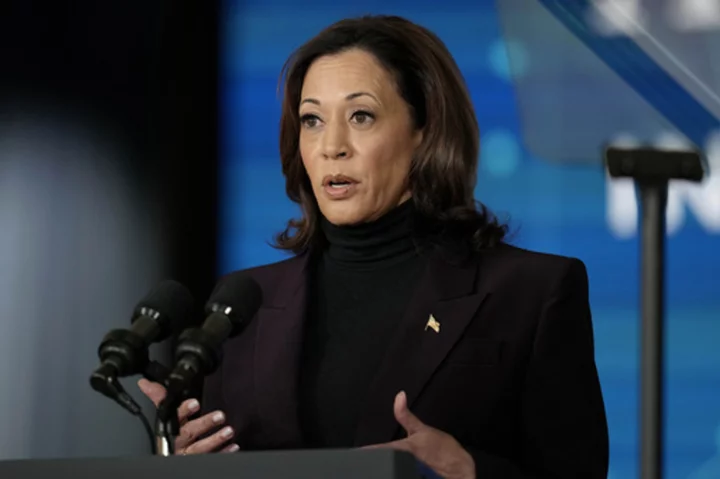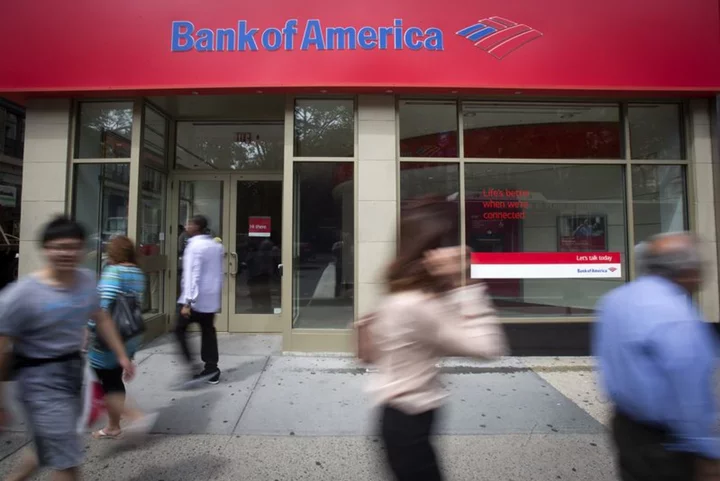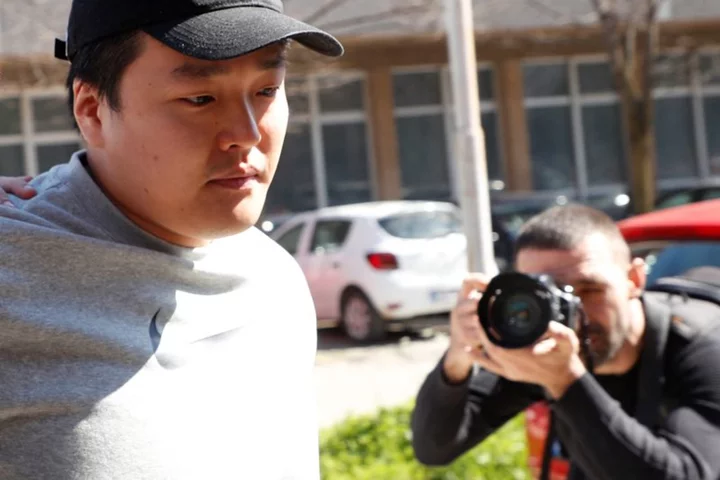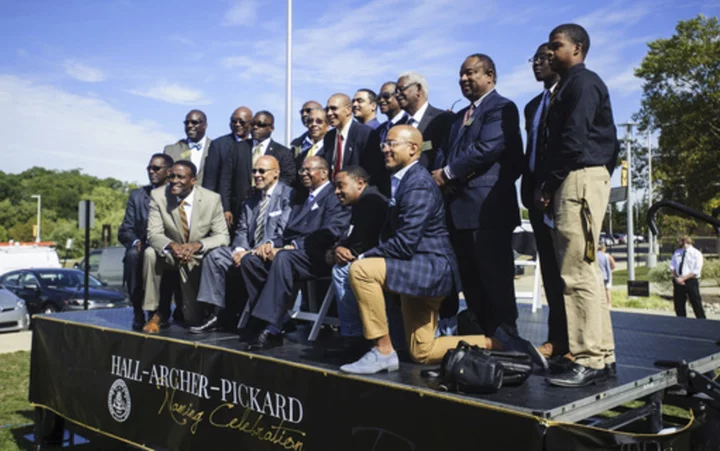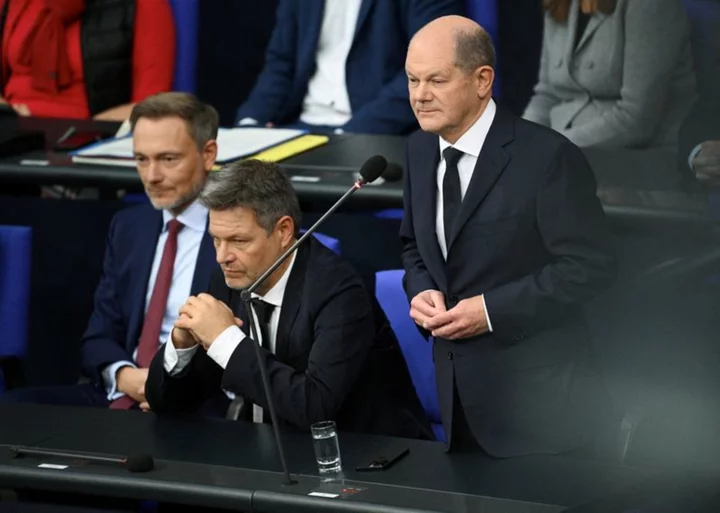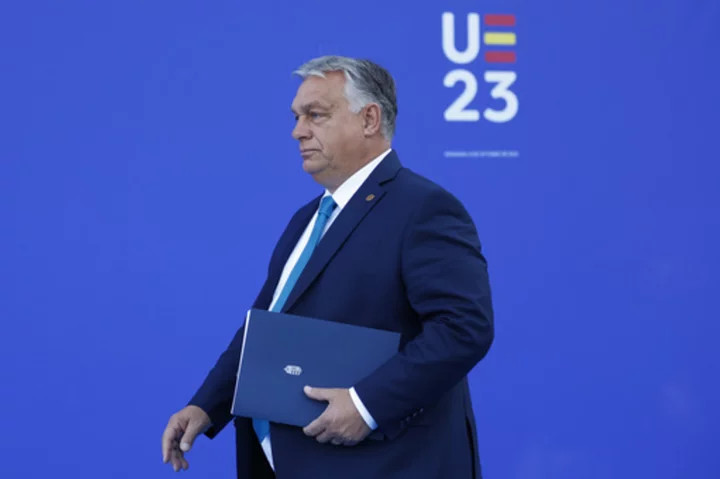BLETCHLEY PARK, England (AP) — Delegates from 28 nations, including the U.S. and China, agreed Wednesday to work together to contain the potentially “catastrophic” risks posed by galloping advances in artificial intelligence.
The first international AI Safety Summit, held at a former codebreaking spy base near London, focused on cutting-edge “frontier” AI that some scientists warn could pose a risk to humanity's very existence.
British Prime Minister Rishi Sunak said the declaration was “a landmark achievement that sees the world’s greatest AI powers agree on the urgency behind understanding the risks of AI – helping ensure the long-term future of our children and grandchildren.”
But Vice President Kamala Harris urged Britain and other countries to go further and faster, in a speech stressing the transformations AI is already bringing and the need to hold tech companies accountable — including through legislation.
In a speech at the U.S. Embassy, Harris said we need to start acting now to address “the full spectrum” of AI risks, not just the most catastrophic.
“There are additional threats that also demand our action, threats that are currently causing harm and to many people also feel existential," she said, citing a senior citizen kicked off his health care plan because of a faulty AI algorithm or a woman threatened by an abusive partner with deep fake photos.
The AI Safety Summit is a labor of love for Sunak, a tech-loving former banker who wants the U.K. to be a hub for computing innovation and has framed the summit as the start of a global conversation about the safe development of AI.
Harris, speaking at the U.S. Embassy, set out the Biden administration’s more hands-on approach to “AI safety and equity.”
“President Biden and I believe that all leaders … have a moral, ethical and social duty to make sure that AI is adopted and advanced in a way that protects the public from potential harm and ensures that everyone is able to enjoy its benefits,” she said.
Harris is due to attend the summit on Thursday alongside government officials from more than two dozen countries including Canada, France, Germany, India, Japan, Saudi Arabia — and China, invited over the protests of some members of Sunak's governing Conservative Party.
Tesla CEO Elon Musk is also scheduled to discuss AI with Sunak in a livestreamed conversation on Thursday night. The tech billionaire was among those who signed a statement earlier this year raising the alarm about the perils that AI poses to humanity.
European Commission President Ursula von der Leyen, United Nations Secretary-General Antonio Guterres and executives from U.S. artificial intelligence companies such as Anthropic, Google's DeepMind and OpenAI and influential computer scientists like Yoshua Bengio, one of the “godfathers” of AI, are also attending.
In all, more than 100 delegates were expected at the meeting held at Bletchley Park, a former top secret base for World War II codebreakers that’s seen as a birthplace of modern computing.
As the meeting began, U.K. Technology Secretary Michelle Donelan announced the signing of the Bletchley Declaration on AI Safety. It outlines the “urgent need to understand and collectively manage potential risks through a new joint global effort.”
South Korea has agreed to host a mini virtual AI summit in six months, followed by an in-person one in France in a year's time, the U.K. government said.
Sunak has said the technology brings new opportunities but warned about frontier AI's threat to humanity, because it could be used to create biological weapons or be exploited by terrorists to sow fear and destruction.
Frontier AI is shorthand for the latest and most powerful general purpose systems built by the biggest tech companies that take the technology right up to its limits, but could come with as-yet-unknown dangers. They’re underpinned by foundation models, algorithms that power chatbots like OpenAI’s ChatGPT and Google’s Bard and are trained on vast pools of information scraped from the internet.
Only governments, not companies, can keep people safe from AI’s dangers, Sunak said last week. However, in the same speech, he also urged against rushing to regulate AI technology, saying it needs to be fully understood first.
In contrast, Harris stressed the need to address the here and now, including “societal harms that are already happening such as bias, discrimination and the proliferation of misinformation.”
Harris said the Biden administration is “committed to hold companies accountable, on behalf of the people, in a way that does not stifle innovation,” including through legislation.
She pointed to President Biden’s executive order this week, setting out AI safeguards, as evidence the U.S. is leading by example in developing rules for artificial intelligence that work in the public interest.
Harris also encouraged other countries to sign up to a U.S.-backed pledge to stick to “responsible and ethical” use of AI for military aims.
___
Lawless reported from London.

